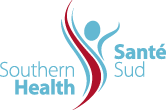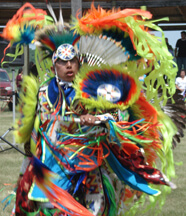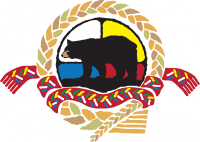Mental Health & Addictions
If you or someone you know is in crisis, call:
1-888-617-7715 1-877-435-7170 (Manitoba Suicide Line)
Southern Health-Santé Sud offers a range of mental health and addictions services in partnership with community services to provide a continuum of care to individuals experiencing challenges with mental health and addictions.
Mental Health & Addictions Contact Information
Mental Health Access – To access Mental Health services in our region, call 1-888-310-4593
If you are living with mental illness,is a disorder of the brain which can affect a person’s ability to think, accomplish your daily activities, relate to others and cope with life’s demands. It has many possible causes and presentations which are not well understood and can occur at any age. know that you can experience recovery and hope. Among other supports, Community Mental Health services will assess, provide counselling, education and referral services to:
adults
children & adolescents
seniors
To contact the Community Addictions Program please refer to Addictions Services.
24 Hour Crisis Line 1-888-617-7715
Manitoba Suicide Line 1-877-435-7170
Klinic Crisis Line 1-888-322-3019
Manitoba Farm, Rural & Northern Support Services 1-866-367-3276
Sexual Assault Crisis Line 1-888-292-7565
Kids Help Phone 1-800-668-6868 or Kids Help Phone Website
Problem Gambling Help Line 1-800-463-1554
Southern Health-Santé Sud Walk-in Counselling
If you’re struggling with your mental health or with a particularly difficult problem you just haven’t been able to overcome, are presently on a mental health waitlist, or need a refresher session, consider utilizing this service. Individuals 16+ are eligible for this service.
In a one-time walk-in session, you can discuss your struggles, explore coping, and get information about other resources that might help. Anything that is on your mind is a good reason to schedule a drop-in counselling session.
You can talk about:
- A life change or transition
- Grief; loss
- Relationships
- Mental Health/Wellness
- Quality of life struggles
- Alcohol and drug use
All are welcome:
- All ages, 16+
- All ethnicities
- All genders
- All orientations
- All abilities
STEINBACH (450 Main St, Steinbach MB)
Thursdays 9 am – 3 pm
PORTAGE LA PRAIRIE (Mental Health Access Services – 524 5th SE, Portage la Prairie MB)
Wednesdays 9 am – 3 pm
WINKLER (Pathways – 351 Main St, Winkler MB)
Mondays 9 am – 3 pm
Sessions offered on a first-come, first-serve basis.
If you are experiencing a mental health crisis – please access crisis services.
Resources
Frequently Asked Questions
If you or someone you care about have concerns about mental health, call Mental Health Access at 1-888-310-4593. You can self-refer or be referred by a family member, family doctor or school counsellor on your behalf.
No. Community Mental Health services are provided through Southern Health-Santé Sud and are paid for by Manitoba Health.
The Access operator will ask you some questions to decide how quickly you need to be seen. Mental health crisis or urgent concerns will be given priority. Depending on how serious, there may be a wait of a few weeks for your first appointment.
The frequency of the meetings is set between you and your community mental health worker who will determine your individual recovery plan.
The Access office will determine where you will meet in consultation with your community mental health worker.
If necessary, a community mental health worker will assist you in arranging an appointment to see a psychiatrist or a psychologist. Psychiatrists and psychologists in the region are available to see children, youth, adults and older adults.
At your first visit, you will be asked a variety of questions related to your mental health as well as details about your goals and expectations. You will be provided with recommendations to assist you with your recovery. You will work with your community mental health worker to decide whether or not you want to work on the recommended recovery plan.
It may be your preference to see a community mental health worker in a neighboring community:
- services will be provided if available in the alternate location
- information will be provided so that you can work with your family doctor
- information and resources to help you work with a community self-help or support group
Information about substance use (addictions) support is available via:
Addictions Foundation of Manitoba
Manitoba Addictions Helpline 1-855-662-6605
Counseling, assessment & resource info.
365 Reimer Ave, Steinbach MB
204-326-7724
Assessment, counseling, in & out patient treatment centre for gambling addiction/drugs/alcohol
1031 Portage Ave, Winnipeg MB
204-944-6200
24-Hour Problem Gambling Helpline
1-800-463-1554
Alcoholics Anonymous of Manitoba
Twelve-step peer support group process for individuals dealing with alcohol dependency issues
206-323 Portage Ave, Winnipeg MB
204-942-0126 or 1-877-942-0126
Salvation Army Chemical Dependency Program
Anchorage Addiction Program
180 Henry Ave, Winnipeg MB
204-946-9401
Youth Addictions Centralized Intake Service
165 St. Mary’s Rd, Winnipeg MB R2H 1J1
204-958-9660 | TTY 204-958-9685
A Provincial service that offers information and support to parents regarding the Youth Drug Stabilization (Support for Parents) Act. It serves to provide information to youth, their families and allied professionals regarding addiction services for youth in Manitoba. To connect with an addictions counsellor who can help you find a suitable program in the community and navigate the continuum of youth addiction services call 1-877-710-3999.


